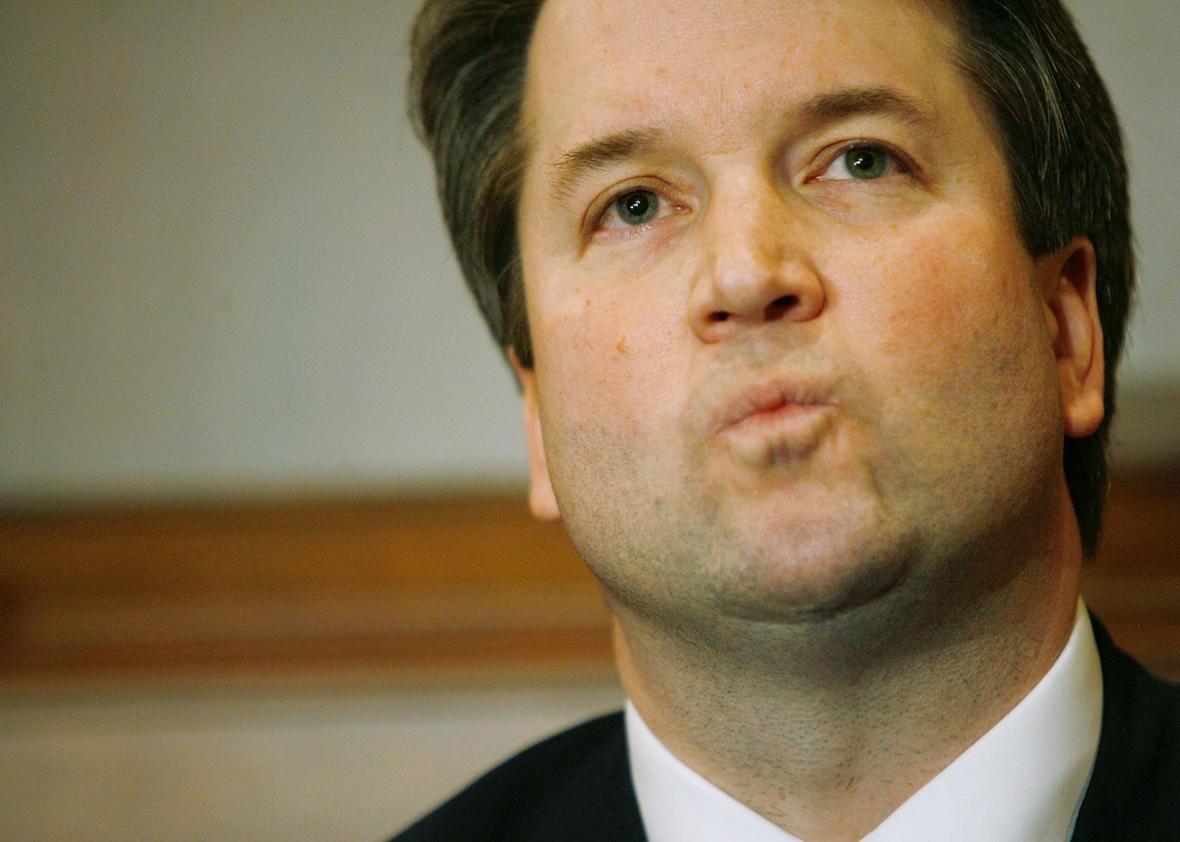On Friday afternoon, the U.S. Court of Appeals for the District of Columbia Circuit granted an undocumented minor in federal custody conditional access to abortion—within the next few weeks. The decision marks a compromise by two conservative judges keen to preserve their anti-abortion bona fides without transgressing Supreme Court precedent, which clearly protects the minor’s right to terminate her pregnancy. This ruling will force the minor at the heart of this case, who is referred to as Jane Doe, to continue her unwanted pregnancy for at least 11 more days.
Doe is a 17-year-old girl who arrived in the United States illegally without her parents. She was placed in a federally funded shelter, where she learned she was pregnant and promptly requested an abortion. The Trump administration, however, does not permit undocumented, unaccompanied minors in federal custody to obtain abortions. Doe sued, alleging a violation of her constitutional rights. A federal judge ordered the government to let her terminate her pregnancy, but the Justice Department appealed, arguing Doe could get the abortion by self-deporting. (In fact, her home country does not allow abortions.) A three-judge panel of the D.C. Circuit heard arguments in the case on Friday morning. The panel included two conservative judges, Brett Kavanaugh and Karen L. Henderson, and one liberal, Patricia Millett.
Friday’s ruling directs both Doe and the government to follow a course of action that Kavanaugh suggested throughout oral arguments. The Trump administration asserts it does not want to become complicit in the abortion by “facilitating” it—that is, allowing Doe to obtain the procedure. The DOJ, though, has stated it would be willing to place Doe with a sponsor who would then let Doe get the abortion. Finding, vetting, and approving a sponsor for an unaccompanied, undocumented minor can take months. Yet Doe is 15 weeks pregnant, and Texas bans abortion after 20 weeks, rendering the sponsorship possibility a dubious solution.
To resolve this problem, Kavanaugh issued an order with a time limit. The D.C. Circuit will give the Department of Health and Human Services until Oct. 31 to find a sponsor for Doe. If she is not released to a sponsor by then, “HHS agrees” that Doe “will be lawfully able, if she chooses, to obtain an abortion on her own pursuant to the relevant state law.” If at that point HHS refuses to let Doe get the abortion, the district court may once again order the government to step aside. And then, “if they choose,” both the government and Doe can “immediately appeal” the district court’s decision. That would bring all parties back to the D.C. Circuit in early November, when Doe would be 17 weeks pregnant.
Henderson, who concurred in the order, will issue an opinion explaining her reasoning within five days. Millett dissented and would allow Doe to obtain the abortion immediately. In a forceful opinion, Millett wrote:
There are no winners in cases like these. But there sure are losers. As of today, J.D. has already been forced by the government to continue an unwanted pregnancy for almost four weeks, and now, as a result of this order, must continue to carry that pregnancy for multiple more weeks. Forcing her to continue an unwanted pregnancy just in the hopes of finding a sponsor that has not been found in the past six weeks sacrifices J.D.’s constitutional liberty, autonomy, and personal dignity for no justifiable governmental reason. The flat barrier that the government has interposed to her knowing and informed decision to end the pregnancy defies controlling Supreme Court precedent.
Kavanaugh’s brief order did not discuss the merits of the case. But it did contain an intriguing stipulation:
We note that the Government has assumed, for purposes of this case, that J.D.—an unlawful immigrant who apparently was detained shortly after unlawfully crossing the border into the United States—possesses a constitutional right to obtain an abortion in the United States.
In making that statement, Kavanaugh is probably attempting to maintain his arch-conservative credentials without flouting the Supreme Court. Doe does clearly have a constitutional right to get an abortion; Friday’s order allows Kavanaugh to let her obtain the procedure without demanding that the federal government permit it. It is an attempt to appease all sides, although it is not exactly a clear-cut victory for Doe, who will now have to suffer through at least 11 more days of a pregnancy she wants to terminate.
But Kavanaugh’s resolution is not foolproof. Doe is highly unlikely to be placed with a sponsor before Oct. 31. The court order states that “HHS agrees” to let her get an abortion if she cannot acquire a sponsor by then. But in the very next sentence, it suggests HHS might not agree to let her get the abortion. In fact, it provides HHS with a clear path to block the abortion, allowing the agency to appeal a future district court decision safeguarding her right to undergo the procedure.
Thus, it is quite possible that Kavanaugh’s handiwork will fail, and the government will be back in court in a few weeks arguing against Doe’s abortion rights. By that point, Doe will be approaching the point at which she cannot legally terminate her pregnancy in Texas. The government’s intervention has already prevented her from getting a first-trimester abortion, a simpler procedure than a second-trimester abortion. Now HHS has been handed a strategy to keep her pregnant for weeks longer. Kavanaugh may think he has played the conciliator in this case. But in reality, he’s given the government another chance to run down the clock on Doe’s abortion rights.
This post has been updated.
